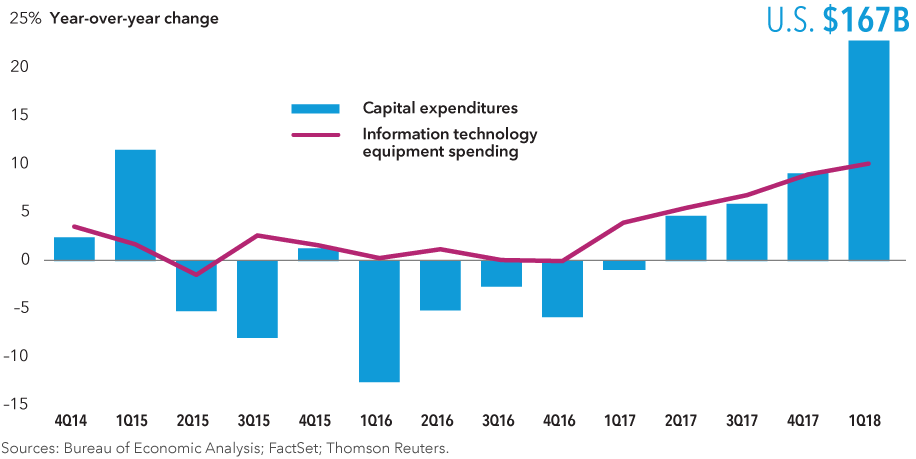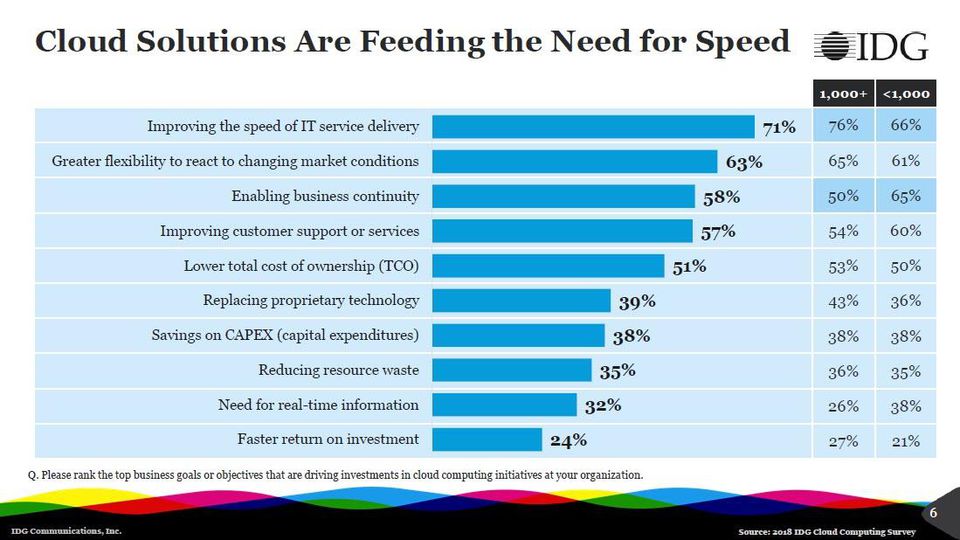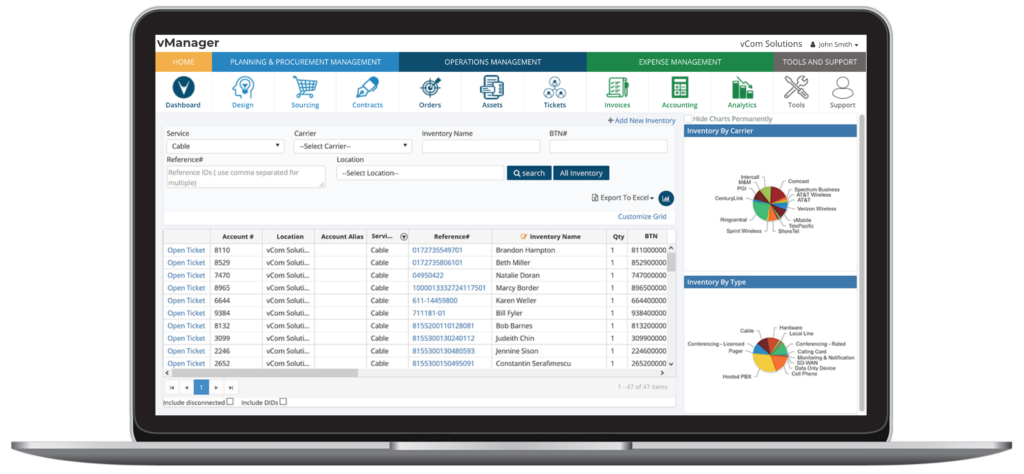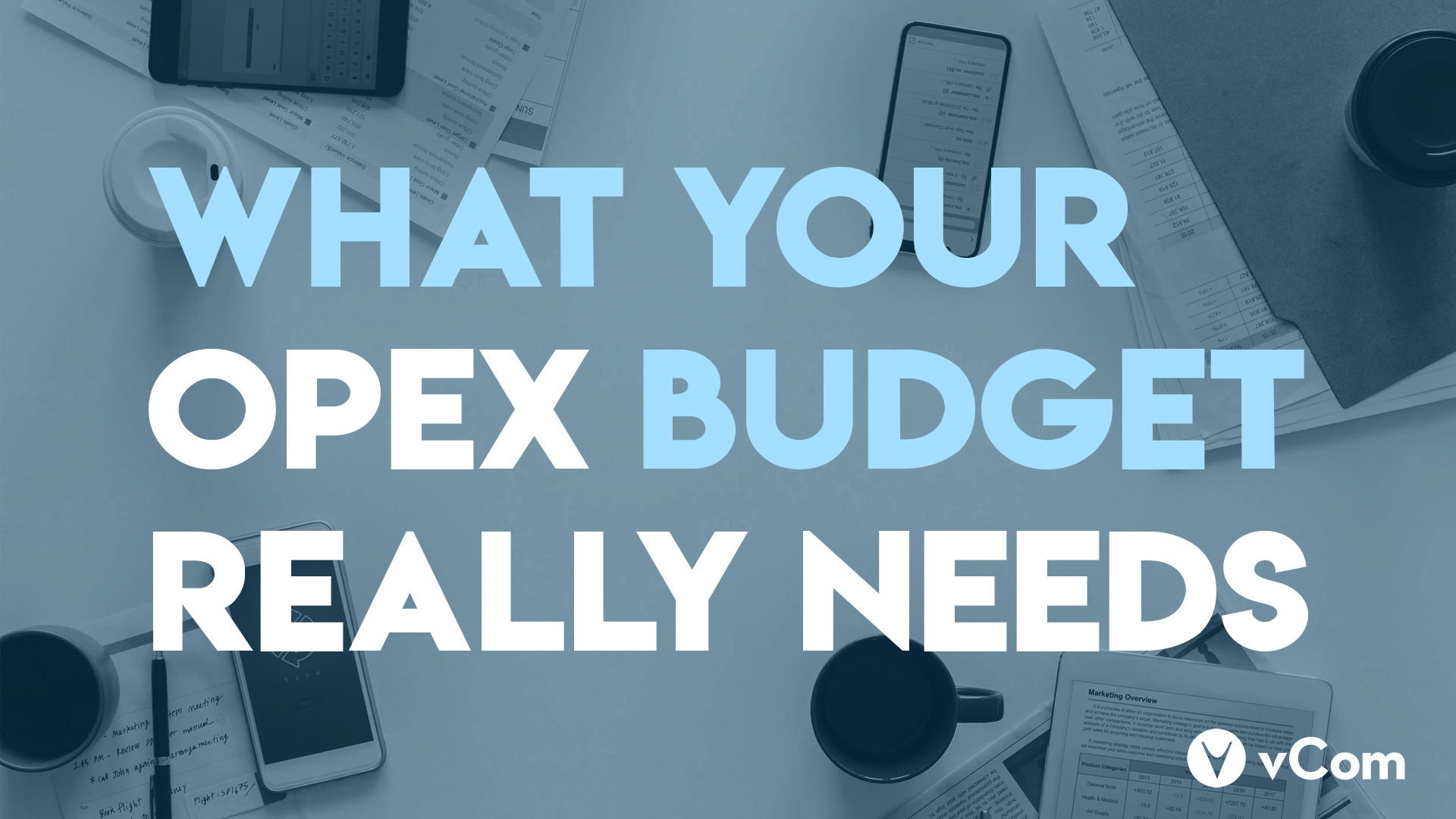Thanks to SaaS, UCaaS, SD-WAN, and a slew of other cloud-based technologies, the speed, cost, and overhead of IT management is evolving at blinding speeds – so it makes sense to invest more in your OPEX budget rather than the physical infrastructure that comprises your CAPEX budget, right? Well, not so fast…
Before jumping into the CAPEX vs. OPEX discussion, humor me as I paint a picture for you:
You own an acre of land that needs to be mowed regularly and have budgeted $1,200 a year to spend on maintaining it. You have two options: buy a $1,200 ride-on lawn mower and do the cutting yourself, or hire a yard service at $100 a month to do it for you. Which would you do?
Most people would buy the mower.

Don’t believe me? Go ahead and ask anyone with a patch of grass if they own a lawn mower. Even if they have regular yard work done for them, they still own a mower, because initially they thought, “I’ll do it myself and save money down the road.” Most think the upfront cost of buying a mower is a good decision to recoup long-term savings, plus you get the immediate satisfaction of having a tangible tool in your shed. This, however, is the wrong decision.
Mowing this acre of lawn yourself is time consuming so you immediately suffer opportunity cost. Not to mention, lawnmowers require regular fuel purchases, blade sharpening, oil changes, and spark plug and air filter maintenance. Lastly, within a year or two, the mower you own will soon become inferior as newer, more efficient models hit the market. Very quickly, your “smart” initial investment turns into an over budget inconvenience. This is why, eventually, so many people have lawn mowers collecting dust while they pay for yard service. They initially made the wrong decision.
When it comes to CAPEX budget, the same wrong decision is being made.
So Which Deserves More Budget: CAPEX or OPEX?
At first glance, it’s easy to assume that CAPEX should be shrinking amongst most companies, considering the explosion of cloud-based OPEX solutions in the last decade. The diversity and range of these products and services are increasing every day, replacing bulky, hardware-driven legacy options. However, the numbers tell a different story. According to a report by CNBC, U.S. companies spent $341 billion on CAPEX in the first half of 2018, which was a year-over-year increase of $55 billion, or 19 percent.

If you look at the product landscape, CAPEX is dying. If you look at the dollars spent, CAPEX is thriving. So which is it? Or better yet, which should we believe when making budget decisions for our own company’s IT strategy? Do we increase CAPEX budget for the mower or OPEX budget for the yard service? In my opinion, the increased money going towards CAPEX doesn’t mean it’s a wise decision. People are spending their money wrong, for the same reasons as my lawn example.
In 2018, companies across the U.S. benefited a $1.5 trillion tax cut – and what happens when companies find themselves with more dollars? They aspire to invest it wisely, gaining the most return. CAPEX wasn’t the only substantial spend increase in 2018. In fact, R&D shot up 14% year-over-year as well. What this shows me is that companies had more money at their disposal and assumed that they would see more return with investments in CAPEX and R&D, areas that are historically result-producing. Like with the mower, they thought the long-term return was better with the more tangible option that they could hold in their hands – such as new hardware or a new product. Meanwhile, OPEX is still often – and mistakenly – associated with maintenance and that it’s budget meant for services required to keep the wheels moving, but not necessarily revenue generating. This is an old, outdated view of OPEX.
Investing in cloud-based IT solutions on the OPEX level does, in fact, generate revenue in many ways – with these three being the most notable:
The most immediate one is cost savings. Just like using a yard service, not only are the upfront costs much lower, but there are proven long-term savings, too – despite most of our inaccurate initial inclinations. A study done by the Brookings Institute showed that the long-term savings by switching to a flexible, cloud-based infrastructure, supported by OPEX budget, “can be substantial, between 25% and 50%.” This is because paying regular subscription costs at reduced rates will always net more positive than irregular bulk purchases (that also come with unforeseen maintenance costs).

Second, investing in OPEX-supported cloud solutions means your business will always have the most relevant, up-to-date technology and services. This will allow your organization stay ahead of the curve, remain best in class, and do better work than your competitors – whether it be faster, higher quality, or both. This increased performance leads to increased business.
Lastly, a subsequent additional advantage is recovered time and bandwidth for your organization and its talent. Cutting your own lawn doesn’t increase the value of your property, but using a yard service gives you more time to do other, smarter projects on your property that will build equity. The same goes for your company. Investing deeper in OPEX and wisely outsourcing certain tasks for various as-a-service solutions allows increased time for employees and managers to identify and work on more revenue-friendly projects.
The Story is Not So Simple
So that should be enough, right? In this evolving landscape, OPEX is obviously more deserving of dedicated budget than CAPEX, and doing so will mean better business.
Well, that’s half true.
Unlike the lawn mower example, businesses don’t have just one lawn that needs mowing – they have many, with many different types of grass. Some grow fast, while others grow slower. Some are dry, while others are well-watered. Some have gophers, while others are pest-free. In short, the different patches of grass are much like the different and varied needs across an organization, which means companies can’t rely on one lawn service to do the job, but instead need to procure the right solution for each situation. This creates two new needs: management and expertise.
As businesses continue to further rely on OPEX-funded services and solutions become increasingly accessible and varied, sufficient oversight and subject matter experts become required in order to handle the scale and diversity of these third-party services. Without proper management and expertise, an OPEX budget can easily get wasted, while also quickly deteriorating your company’s workflow.

With as-a-service options being so easy to initiate and adopt across a team (whether approved by IT or not), the management of these solutions is paramount in making sure you know all of the licenses your organization is using (and paying for). Meanwhile, expertise helps you navigate the saturated marketplace of cloud-based solutions to guarantee that you are integrating the right products for your business’ needs.

Between management and expertise, the goal is making sure you’re not just increasing your OPEX spend, but using it wisely. IT spend management software, like vCom Solutions’ vManager, can help you make sure you’re procuring the right service at the best cost. Choosing a yard service to mow your lawn so you can work on more valuable tasks is a good decision, unless that yard service is bad at their job. With built-in tools like the Vendor Scorecard, along with vCom’s personalized subject matter experts, vManager ensures that you can always and easily adopt the best provider.
The way we work has changed – and continues to do so – so the way we spend and function should quickly evolve with it. The shift of dollars from CAPEX to OPEX must also be accompanied with a shift in focus, leaning into all-encompassing management tools and relying on experts to best implement OPEX-related services. In today’s landscape (both professionally and naturally), opting for lawn services is the wisest way to spend your money, and the businesses that will come out on top won’t be the ones who buy the biggest, shiniest lawn mower; instead, it will be the ones who decide to put their mower in the shed sooner than others.


